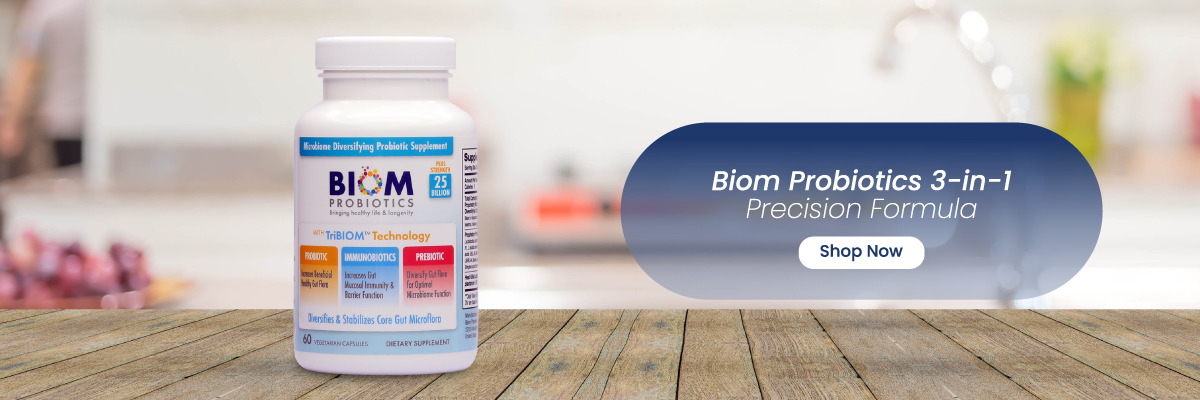Maintaining a robust immune system is crucial for overall health and well-being. While many factors contribute to immune health, one often overlooked component is the gut microbiome. Probiotics, the beneficial bacteria found in various foods and supplements, play a significant role in supporting and enhancing immune function. This comprehensive overview will explain how probiotics support immune health and why incorporating them into your daily routine can be beneficial.
The Gut-Immune Connection
A significant portion of the immune system resides in the gut. The gut-associated lymphoid tissue (GALT) is home to a vast network of immune cells that interact with the gut microbiome. Probiotics help maintain a healthy balance of beneficial bacteria in the gut, which is crucial for optimal immune function.
Mechanisms of Probiotics in Supporting Immune Health
- Enhancing Gut Barrier Function:
- Probiotics strengthen the gut lining, preventing harmful pathogens from entering the bloodstream. This barrier function is essential for protecting the body from infections and maintaining overall health.
- Modulating Immune Responses:
- Probiotics can help modulate the immune system, ensuring it responds appropriately to threats. They promote the production of anti-inflammatory cytokines and regulate the activity of immune cells, reducing the risk of chronic inflammation and autoimmune diseases.
- Promoting the Production of Antibodies:
- Certain probiotic strains can stimulate the production of antibodies, which are crucial for identifying and neutralizing pathogens. This enhances the body’s ability to fight off infections and diseases.
- Balancing the Gut Microbiome:
- A balanced gut microbiome is essential for a healthy immune system. Probiotics help maintain this balance by promoting the growth of beneficial bacteria and inhibiting the growth of harmful bacteria.
Benefits of Probiotics for Immune Health
- Reduced Risk of Infections:
- By supporting a healthy gut microbiome and enhancing immune responses, probiotics can reduce the risk of infections such as the common cold, flu, and gastrointestinal infections.
- Alleviation of Allergies:
- Probiotics can help modulate the immune system’s response to allergens, reducing the severity of allergic reactions and symptoms. This is particularly beneficial for individuals with seasonal allergies or food intolerances.
- Improved Vaccine Efficacy:
- Some studies suggest that probiotics can enhance the body’s response to vaccines by boosting the production of antibodies. This can improve the effectiveness of vaccinations and provide better protection against diseases.
- Management of Chronic Conditions:
- Probiotics may help manage chronic conditions such as irritable bowel syndrome (IBS), inflammatory bowel disease (IBD), and autoimmune diseases by reducing inflammation and supporting immune function.
Best Practices for Incorporating Probiotics into Your Routine
- Choose the Right Strains:
- Different probiotic strains offer various health benefits. For immune support, look for strains such as Lactobacillus rhamnosus, Bifidobacterium lactis, and Lactobacillus casei.
- Consume Probiotic-Rich Foods:
- Incorporate foods like yogurt, kefir, sauerkraut, kimchi, and other fermented products into your diet to naturally boost your probiotic intake.
- Consider Probiotic Supplements:
- For a more concentrated dose of beneficial bacteria, consider taking a high-quality probiotic supplement. This is especially useful for individuals with specific health concerns or those who do not consume enough probiotic-rich foods.
- Maintain a Healthy Lifestyle:
- A balanced diet, regular exercise, adequate sleep, and stress management are crucial for supporting overall immune health. Probiotics can be a valuable part of this holistic approach.
Probiotics play a vital role in supporting immune health by enhancing gut barrier function, modulating immune responses, promoting antibody production, and balancing the gut microbiome. Incorporating probiotics into your daily routine can help reduce the risk of infections, alleviate allergies, improve vaccine efficacy, and manage chronic conditions.
For a reliable and effective probiotic supplement, consider BIOM Probiotics 3-in-1, available at BIOM Probiotics. This advanced formula combines probiotics, prebiotics, and postbiotics to provide comprehensive support for your immune health, ensuring you achieve optimal wellness. Start boosting your immune health today with BIOM Probiotics.





